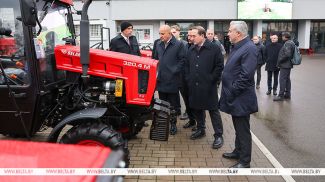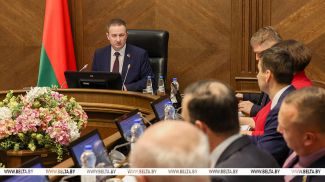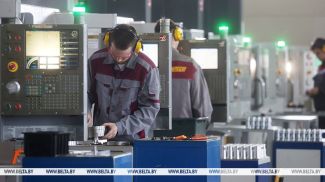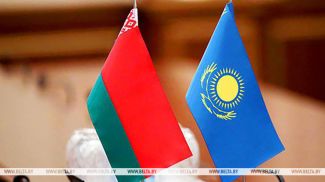MOSCOW, 28 September (BelTA) – Belarus' Ambassador to Russia Dmitry Krutoi explained why Belarus is developing all areas of the manufacturing industry at the expert and media forum “Belarus-Russia cooperation in industry, science and technology. Science. Cosmos. Education”, BelTA has learned.
“I have been working as an ambassador for two months and I have already been asked several times why such a small country is developing virtually all industrial sectors, including 13 traditional industries and about 10 new ones. Over the past 15 years this matter was raised regularly in Belarus and there were proposals to focus on 3-4 priority areas, like other countries do. The president would always discontinue such discussions and say that we would retain and promote everything. There were no such discussions within the framework of the last program. When we faced the COVID-19 pandemic, the sanctions, the pressure on our country and Russia (these are absolutely fresh expert assessments) we realized that had we followed this advice, today about 380,000 people in Belarus would have been out of job as only food production and partially the pharmaceutical industry are not under sanctions now. We should also add 85,000 partners in Russia who work in close cooperation with us. Multiply roughly by two as these people have families, and thus, half a million people would have struggled by now, which would have resulted in social tension, protests and the high risk of losing sovereignty. We predicted such a situation and such a scenario would be very desirable for our former partners and ‘friends' who imposed these indiscriminate sanctions,” Dmitry Krutoi said.
“It is difficult to maintain the same level of production. But it is almost impossible to recover from de-industrialization. And we see on the example of the Baltic states, Moldova, Georgia that the loss of industry essentially leads to a situation when the country falls under external control,” the ambassador added.
He also said that, despite the enormous difficulties, $12 billion was invested in the traditional sectors of the Belarusian industry over the past 10 years.













